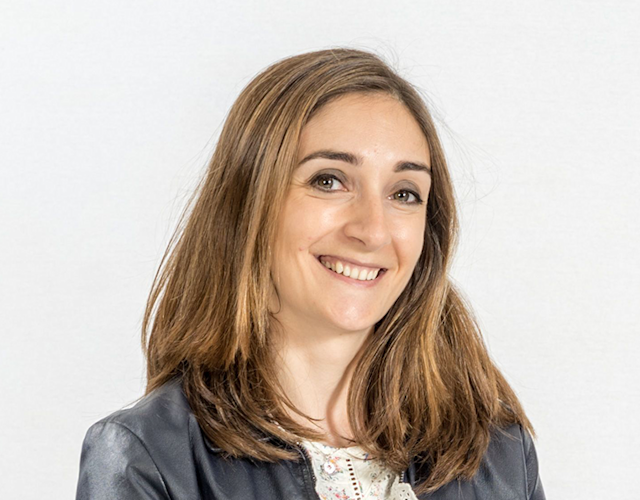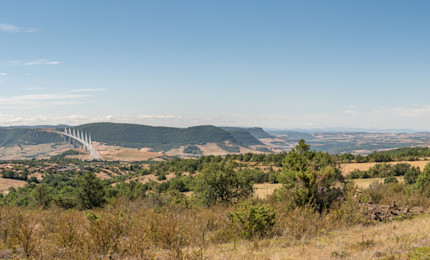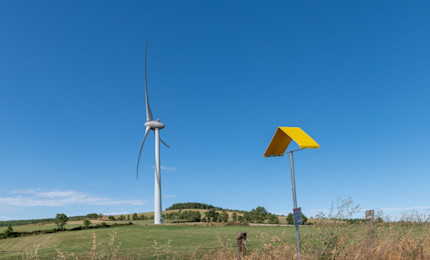Urgence gaz 0 800 028 800

H2med project
By 2030, Europe expects to consume 20 million tonnes of hydrogen per year to decarbonise and supply industry and transport, while ensuring energy sovereignty. To that end, the BarMar hydrogen pipeline will link Barcelona to Marseille, providing the connection between Southern Europe and Northern Europe.
H2med - BarMar: one of the vertebrae of the future European hydrogen backbone
Linking the coming hydrogen networks of the Iberian peninsula with those of northern Europe: this is the aim of the ambitious H2med infrastructure project jointly led by France, Spain and Portugal, with Germany’s support. By 2030, the project, in which Teréga is one of the main actors, aims to link the competitively-priced hydrogen production centres in Portugal and Spain, which will rely chiefly on solar power, to the major consumption areas of Northwestern Europe, while serving the whole nation’s needs alongside domestic production.
At the European Council on 20 October 2022, the French, Spanish and Portuguese Heads of State and Government announced their intention to create a “green energy corridor” linking the three countries to the European energy grid. That commitment was ratified on 9 December 2022 at the Euromed Summit in Alicante. A memorandum of understanding was then signed by four transport grid managers (GRTs): France’s Teréga and NaTran, Portugal’s REN, and Spain’s Enagás. In December 2022, the four operators submitted the H2med project for the list of projects of common interest (PCIs). They were joined in October 2023 by the main German grid manager, OGE, thus confirming Germany's interest in the H2med project.
Since 8 April 2024, H2med has been officially recognised as a European project of common interest.
H2med: European green hydrogen entry point
The H2med project has two strategic segments: one segment which will link the hydrogen networks of Portugal and Spain (CelZa project), and an underwater infrastructure which will link Barcelona with the port of Marseille (BarMar project).
The BarMar project will be connected in the west to HySoW, a 650 km hydrogen infrastructure developed by Teréga, which will supply the industrial centres of Bordeaux, Toulouse and Lacq, as well as the Nouvelle-Aquitaine underground storage areas and the ports of Bayonne and Port-la-Nouvelle.
The aim: an operational infrastructure by 2030
Situated where the hydrogen networks of southern and northern Europe meet, BarMar will allow 2 million tonnes of hydrogen to be transported per year, which is 10%* of expected European hydrogen consumption by 2030.
It is also a real industrial challenge, with about 450 km of pipeline to be laid on the Mediterranean seabed, at a depth of up to 2600 m.
The H2med project has received the support of the European Commission, which incorporated it in November 2023 into the delegated act with the list of projects of common interest (PCIs) and projects of mutual interest (PMIs), finally adopted in the second quarter of 2024. These infrastructure projects are seen as a priority for interconnecting the energy networks of European Union countries; they benefit from fast-track authorisation procedures (simplified regulatory and permit procedures), but they also attract particular attention on the part of investors and future customers of those infrastructures.
Projects included in the list of PICs will benefit in particular from a simplification of the procedures for awarding permits, and more efficient environmental assessment. This important stage will also allow the BarMar and CelZa projects to qualify for financial assistance and be included in the next European call for funding (2024 Energy CEF call), the aim here being to provide financial backing for the studies required to trigger the investment decisions planned for 2026 and to meet the commissioning deadlines set for 2030.
Preliminary studies for the project have already begun, including an assessment of the different possible corridors. Social and environmental impact studies have also been launched.
The final decision on investment will be taken at the end of 2026, and the target date for H2med to be operational is 2030. As part of the European Green Deal, the EU set out its road map for achieving carbon neutrality by 2050. The energy transition is at the heart of that ambition, and BarMar, as a key element of H2med, will make a major contribution to achieving it.
*Source: REPOWER EU plan = 20 Mt of EU demand by 2030. BarMar = 2 Mt, i.e. 10% of EU demand by 2030
Timeline
20 October 2022: France, Spain and Portugal decide on the joint creation of a Southern European corridor for green hydrogen destined for Northern Europe.
9 December 2022: mandate for gas transport operators Teréga, NaTran, Enagás and REN to develop the H2med project and its two BarMar and CelZa infrastructures, along with the engagement of the different stakeholders at the Euromed summit in Alicante, with the support of European Commission president Ursula Von Der Leyen.
13 December 2022: signing of a MoU (Memorandum of Understanding) by the four European network managers: Teréga, NaTran, Enagás and REN
15 December 2022: the four European network managers, Teréga, NaTran, Enagás and REN, submit the project as a candidate for the Projects of Common Interest (PCI).
January 2023: joint declaration by the French president, Emmanual Macron, and the German chancellor, Olaf Scholz, of the H2med project’s extension as far as Germany.
18 October 2023: German operator OGE joins the original four European network managers as promoter of the H2med project.
28 November 2023: publication by the European Commission of the delegated act proposing inclusion of the H2med project in the list of “Projects of Common Interest” (PCI) and “Projects of Mutual Interest” (PMI).
8 April 2024: publication of the list of Projects of Common Interest (PCI) / Projects of Mutual Interest (PMI), including the H2med project, in the Official Journal of the European Union.
April - October 2024: project put forward as a candidate for finance under the MIE (Mechanism for Interconnection in Europe), also referred to as “CEF.E”. The Mechanism for Interconnection in Europe (CEF) for energy is an EU finance programme designed to implement the Trans European energy networks policy.
2026: approval of the CEF.E finance mechanism for construction and final decision to invest in it.
2026-2029: implementation: engineering, permit management, procurement and construction
2030: Date of commissioning

Marie-Claire AounMarie-Claire Aoun, Head of Strategy and Institutional Relations, TerégaThe H2med corridor, including its BarMar component, will be an essential asset in offering green hydrogen to European industry at a competitive price. It will be a real accelerator to allow the European Union to achieve its target of carbon neutrality by 2050.
Focus on studies for the BarMar component
Since December 2022, the H2med project has made constant progress. The preliminary project studies and the assessment of alternative routes, aimed at allowing selection of the BarMar project corridor with the smallest impact, are under way. The social context and environmental studies are also being finalised.
Those studies were launched in February 2024 by the three partners behind the BarMar project, namely Enagás, NaTran and Teréga, in coordination with OGE.








